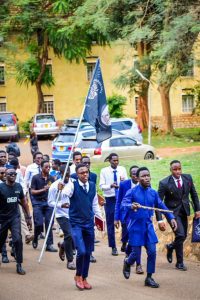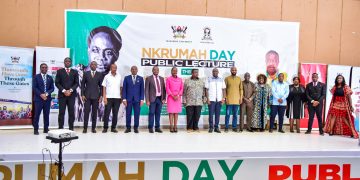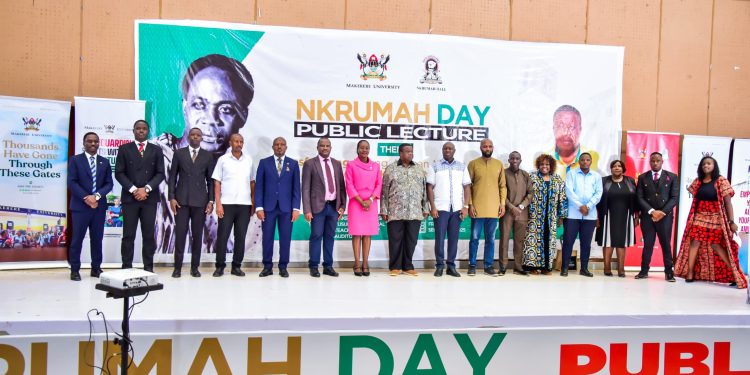Makerere University on Friday, 26, 2025, marked the annual Nkrumah Day with a public lecture celebrating the life and legacy of Ghana’s first President, Kwame Nkrumah.
Themed “Transforming Young African Minds: Lessons from Kwame Nkrumah’s Ideas,” the event drew students, faculty, and distinguished guests, including Hon. Major General Kahinda Otafiire, Minister of Internal Affairs, and Kwame Ejalu, Honorary Consul of Ghana to Uganda.
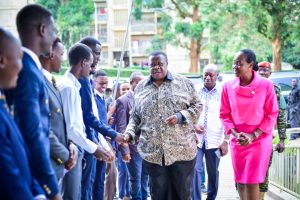
Representing the Vice-Chancellor, Dr Winifred Namuwonge Kabumbuli, Dean of Students, reflected on Nkrumah’s enduring influence. “Nkrumah Hall is a daily reminder of the legacy of Kwame Nkrumah, who united many Africans and was a huge advocate of self-rule across the continent. Today, we reflect and remember his wisdom, courage, and commitment to see Africa overcome its challenges of leadership and development,” she said.
Dr Kabumbuli emphasised Makerere University’s century-long commitment to fostering leadership and critical thinking. “Makerere University is a dynamic institution, and we interest our students in what is happening in Uganda, regionally, in Africa, and internationally, including Pan-Africanism. We are here to inspire leadership and commitment among our students,” she added.
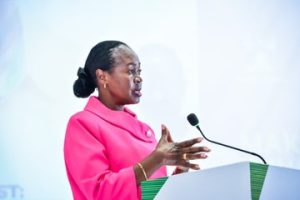
She highlighted Nkrumah Hall’s significance as a symbol of Pan-African ideals. “It embodies Nkrumah’s views on integration and Pan-Africanism that have united many Africans and contributed to independence for several others,” Dr Kabumbuli noted.
She also praised the organising committee for supporting students’ academic and personal growth, stating, “I stand here convinced that this gathering will inspire our students, alumni, and the public to reflect on Nkrumah’s ideas and empower students to become agents of change.”
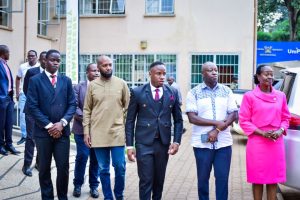
Honouring Pan-African Legacy
Kwame Ejalu expressed personal pride in the celebration, noting the significance of his name, inspired by Nkrumah. “I carry the name Kwame because of my father’s admiration for Kwame Nkrumah. In Ghana, people are named after the days of the week—Kwame means Saturday. I am proud to bear this name in his honour,” he said, adding that Ugandans’ appreciation for Nkrumah’s ideals underscores the continuing relevance of Pan-Africanism.
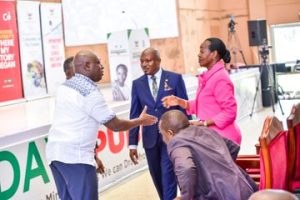
He highlighted the strong appreciation Ugandans hold for Nkrumah’s ideals, noting that the lecture underscores the ongoing relevance of Pan-Africanism. “I am honoured to see the interest Ugandans have in Kwame Nkrumah and Ghana itself. It really gives me great pleasure, and I will take this message back home,” he added.
Youth Leadership and Conviction
Pan-Africanist and entrepreneur Kwame Rugunda emphasised conviction and proactive leadership. This was during a panel discussion moderated by Dr Nansozi Suzie Muwanga, Executive Director of the Julius Nyerere Leadership Centre (JNLC) at Makerere University, former Head of the Department of Political Science, and a Fulbright New Century Scholar (NCS).
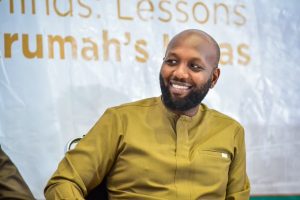
“Gen. Otafiire told us that they were part-time students and full-time guerrillas. Who gave them permission to be guerrillas? No one. Permission comes from your convictions, from the truths you hold dear. Young people must understand: no one will create space for you until you rise up and claim it,” Rugunda said.
He also highlighted the importance of intra-African trade and historical Pan-African movements, reminding students that leadership and progress are shared responsibilities across generations. “Each generation inherits the responsibility to advance African commerce, unity, and values. Economic and societal progress depends on recognising your potential and embracing the limitless possibilities available to you,” he stated.
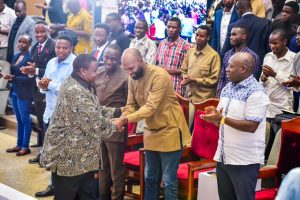
Strategic Youth Engagement
Dr Charlotte Mafumbo, Acting Head of the History Department, stressed African unity and regional cooperation. “Africa’s abundant resources should benefit Africans rather than be exploited by external forces seeking to destabilise us. We must refuse to participate in these efforts and take ownership of our resources and governance.”
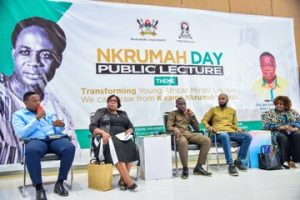
She urged young people to pair education with action, leverage government support, and use international frameworks like UN Security Council Resolution 2250 to engage productively.
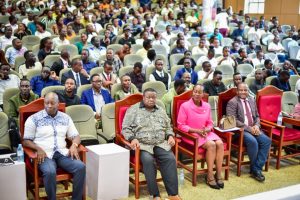
“Education and knowledge are important, but they must be accompanied by action. Governments should create spaces for youth to mobilise and implement their ideas,” she noted, adding, “Youth have the greatest capacity to address challenges in their communities, and elders and governments must enable, not obstruct, their ideas.”
Building on Legacy and Unity
Peter Arinaitwe, Chairperson of Nkrumah Hall, praised the hall as a living symbol of Pan-Africanism. “I stand here with honour and immense pride in Kwame Nkrumah, a leader, thinker, and liberator. It’s an honour that our hall carries his name,” he said, urging youth-led initiatives to foster solidarity among students.
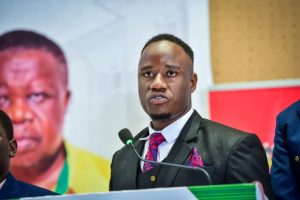
Julius Kateregga, former Guild President, called on Africans to reclaim dignity and agency in the post-colonial era. “When I speak about Pan-Africanism, I anchor my submission on the dignity of the African people. While other races have long looked down on us, we must also confront the uncomfortable truth that our own leaders have not always upheld that dignity,” he said.
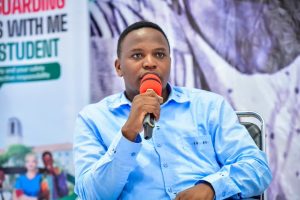
Robert Maseruka, another former Guild President, emphasised generational leadership, urging elders to step aside and empower youth to lead. “Elders must be ready to pass on the mantle and allow the next generation to take up leadership, because a 74-year-old leader still in power illustrates the challenges we face,” he stated.
He went on: “Young people are educated and skilled; we are ready to lead. The current generation has a responsibility to shape a better future for our children and grandchildren by finding new solutions and actively engaging to ensure our country thrives.”
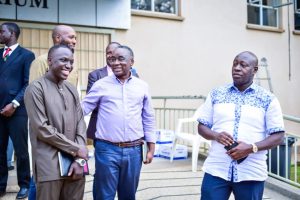
Ceremonial Celebrations
The event included symbolic activities, with Hon. Otafiire planting a tree at Nkrumah Hall as a sign of growth and continuity. Larry Alinda, the Chief Fresher, received a thank-you gift, while the celebrations concluded with a cake-cutting ceremony and an afterparty for students, hall residents, and guests.
The Nkrumah Day Public Lecture reaffirmed Makerere University’s role as a hub for intellectual thought, leadership, and Pan-African advocacy, emphasising that commemorating African icons is essential to inspiring the continent’s youth toward innovation, self-determination, and solidarity.
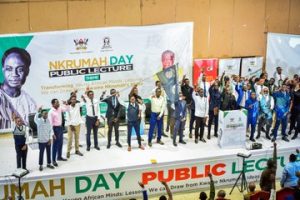
Also in attendance was Dr Rodney Rugyema, Principal Warden of Nkrumah Hall, who spearheaded the organisation of the event alongside Awel Uwihanganye, Manager in the Advancement Office and Founder of the LéO Africa Institute.
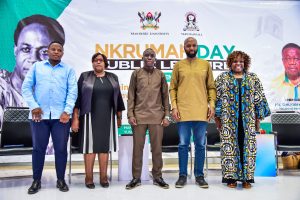
Martine Rugamba, Advancement Officer in the Office of the Vice Chancellor, and Donna Keirungi, Warden of Africa Hall, served as the Masters of Ceremony, ensuring the program flowed seamlessly.
